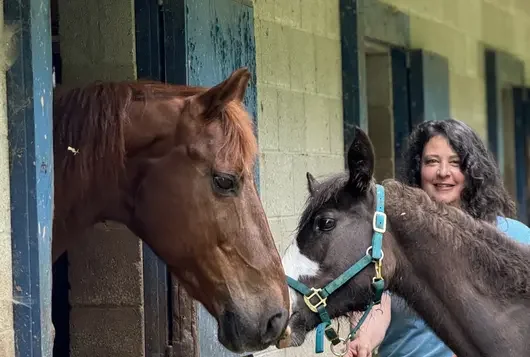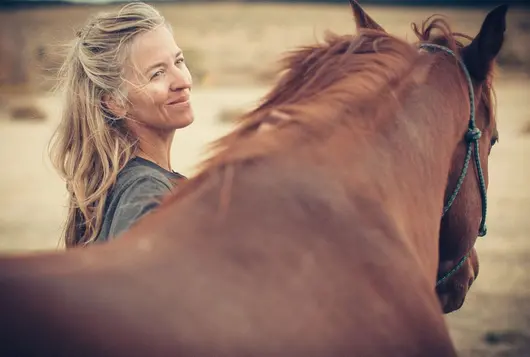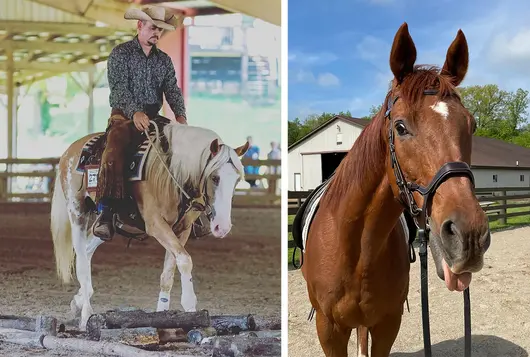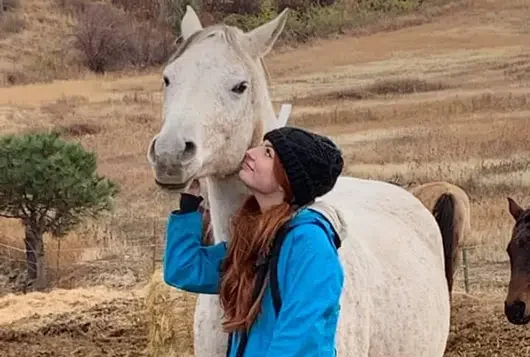They Did It: Youth Equine Programs
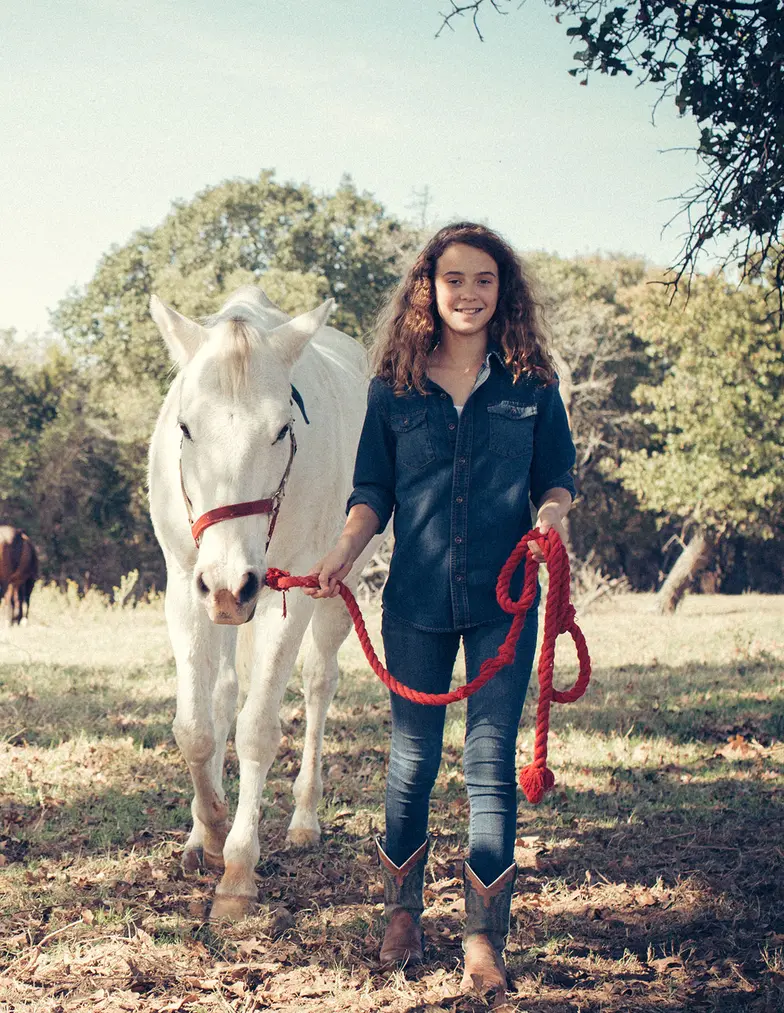
Nexus Equine in Oklahoma City, OK, and Texas Agricultural and Mechanical (A&M) Extension in College Station, TX, proved that engaging youth is worth the investment by delivering inspired students, happier (and adopted) horses, and improved communities.
Rita Hoch, President and CEO at Nexus Equine, and Dr. Chelsie Husman, Extension Horse Specialist at Texas A&M Extension, shared their insights on youth programs and the huge payoffs in building community and finding more homes for horses.
How Equine Youth Programs Work
Simply put, youth equine programs give students the opportunity to engage in a hands-on program that actively helps horses atrisk. Additionally, these innovative programs provide an outlet and alternatives for 3 main goals:
-
Providing horses with essential training to be adoptable
-
Expanding youth skills (with horses and broader career and social skills)
-
Growing a community of potential horse adopters through education and engagement
Why Launch a Youth Program
Both Hoch and Husman participated in youth 4-H programs that inspired their life-long journeys in helping horses. They recognize their duty to pay it forward. “The kids are our future! It’s so important to give them opportunities that they might not otherwise have. Same with our horses—without this program, they might not learn those new skills that are literally life-changing for their adoptions,” says Hoch.
Both organizations have seen how their programs provide more than just unique opportunities for youth with horses. The programs have also profoundly impacted the youths’ leadership, interpersonal skills, and sense of community. For a long time, Texas A&M’s outreach efforts focused on youth and student awareness about a major concern in the equine industry: the prevalence of at-risk horses. However, they never had any answers for how they could help solve that problem. They developed the 4-H Homes for Horses program to serve as a tangible way for 4-H youth to engage in creating a long-overdue solution.
The bonus of these programs is a whole new community of horse owners. By facilitating youth involvement and providing in-depth, hands-on education, these programs create equipped and committed horse adopters, which is a very exciting and truly win-win situation.
Benefits of Youth Programming
The primary program goals on paper may be growth, development, and achievements, but so many life skills also flourish. The kids and the horses must go outside their comfort zones to grow, and both programs note that it’s been amazing to watch.
For example, Nexus Equine’s main youth program is the Oklahoma 4-H Equine Makeover, where 4-H youth and Nexus horses are paired together for a 90-day challenge with the primary goal of increasing their skills. The youth trainers do not compete against each other; they compete to improve themselves. The program also includes educational components like a written essay and a video. The youth not only learn about riding a horse but also help the horses increase their marketable skills for future adoption. The kids gain critical verbal and graphic skills essential for the workforce and everyday life.
Both organizations have no shortage of inspiring success stories to showcase the worth of investing in these youth programs, including 16 youth participants and 13 horses adopted.
Challenges of Youth Programming
These programs never have a shortage of kids wanting to work with horses, but there can be other challenges. Sometimes, matching youth participants with appropriate horses can be difficult, especially when shelters have a lower overall population. However, coordinating with others in the local equine community usually helps. Texas A&M notes the challenge can be more about helping youth see perspectives that may be beyond their years. “As an adult, you have so much more insight than a youth,” notes Husman. “Sometimes you have to get creative to help them see, understand, and care about something you know to be important to the horse, horsemen, and horse industry.”
Supporting Youth Participants
Engaging youth in programs can sometimes be a balancing act. Youth enjoy accessible, convenient, and entertaining information, such as through social media. However, face-to-face, personalized education is also highly valued by youth when kept informal and inviting. A tailored and balanced approach helps increase effective youth engagement efforts.
Additionally, collaborations with other education partners, like local schools and universities, can be a game changer. Education partners have helped reach out to stakeholders and suggested innovative programs that they are excited to support and are willing to rally youth behind. These are experts in the ever-changing language of student engagement and can ensure you truly get to know the student and plug them into the best fit. For example, Nexus Equine’s school partnership recommended students write an essay and do a video presentation to add an educational component and to get to know the students better.
Both programs also underscore the importance of creating strong relationships with the parents. Holding parent meetings helps to facilitate deeper conversations. “We want them to feel like they can call us about anything that concerns their kid, which helps us learn how we can improve their experience,” says Hoch.
Partners Ensure Suitable Pairings (& Crucial Growth Opportunities)
Partnerships between equine adoption organizations and educational agencies have been critical in delivering their expertise to ensure placement pairings are a great fit. Similar to adopters, it can be challenging to match youth and horses just by reading a written application. These two organizations' applications include questions on handling and riding skills, an essay on why they want to do the program and what they hope to gain from it, and interviews to help identify personality characteristics to best match them with a horse.
Inspiring Horse-Youth Partnerships
Both organizations have no shortage of inspiring success stories to showcase the worth of investing in these youth programs, including 16 youth participants and 13 horses adopted. Nexus paired a student with a blind horse, and when they finished performing, the audience was full of tears!
Husman from Texas A&M notes that she’s been moved by every Texas 4-H Homes for Horses youth that competed at their finale event. “It was inspiring to see the progress that they’ve made with their horses because of their time invested, patience, persistence, and care,” says Husman. “Horses are a true testament to kindness, forgiveness, and courage, and they did not disappoint in sharing that with the youth in our program.”
We have lots more on this subject:

